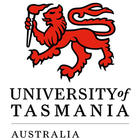Graduate Certificate in Tourism, Environmental and Cultural Heritage
- Posted by University of Tasmania (UTAS)
- Home
- Courses
- University of Tasmania (UTAS)
- Graduate Certificate in Tourism, Environmental and Cultural Heritage
Graduate Certificate in Tourism, Environmental and Cultural Heritage
This immersive degree offers a unique learning experience, where you’ll gain real-world understanding of contemporary issues in tourism, an understanding of managing tourism in sites of environmental and cultural value and acquire skills to envisage and grow tourism enterprises. The University will utilise its strong industry connections and enable experiential…
Categories
COURSE DESCRIPTION
This immersive degree offers a unique learning experience, where you’ll gain real-world understanding of contemporary issues in tourism, an understanding of managing tourism in sites of environmental and cultural value and acquire skills to envisage and grow tourism enterprises.
The University will utilise its strong industry connections and enable experiential learning opportunities to ensure your learning and work readiness is maximised. Learn through experience, including on-site learning, industry encounters, and critical reflections on your own tourist experiences.
Tasmania will be used as a living laboratory for this course; the 7 UNESCO World Heritage listed properties within the island state, plus signature Tasmanian businesses such as Mona will be used as case studies for learning.
You will also develop skills to manage the opportunities, complexity and sensitivities that arise when culture, environmental values and creativity intersect with business development and be equipped with entrepreneurial and leadership tools, frameworks and an attitude to work in a fast changing and competitive industry, disrupted constantly by technology and an ever-changing market.
Learning Outcomes
- Identify and analyse the impact of one or more key developments in contemporary tourism and cultural heritage theory on the tourism and cultural heritage industries.
- Evaluate the application of sustainable tourism principles to the tourism and cultural heritage industries.
- Synthesise knowledge of theory and practice to design effective approaches to either contemporary cultural heritage management, or entrepreneurial tourism communication.
- Research and assess one, or more, contemporary tourism innovation and its application to the tourism and cultural heritage industry
- Communicate effectively to present aspects of your work in an appropriate manner to a wide range of tourism and cultural heritage stakeholders
REQUIREMENTS
Admission to the Graduate Certificate in Tourism, Environmental and Cultural Heritage requires either:a Bachelor’s degree, or Australian Advanced Diploma or above, or approved equivalent.or at least 2 years’ tourism industry experience.
IELTS (Academic) – 6.0 (no individual band less than 6.0)
TOEFL (iBT) 72 (no skill below: Reading 16; Listening 16; Speaking 18; Writing 22)
PTE Academic 50 with no score lower than 50
UTAS Access-English Level 7 – 60% (no individual score less than 60%)
Cambridge CAE (Certificate of Advanced English) – B Grade
Cambridge CPE (Certificate of Proficiency in English) – C Grade
Cambridge BEC (Business English Certificate) Higher – C Grade
EDUCATIONAL INSTITUTION
The University of Tasmania was officially founded on 1st January 1890 and is located at Sandy Bay, Tasmania. In addition to the main campus at Sandy Bay, it also operates out of the Newnham Campus and the Cradle Coast Campus. The most popular courses offered are the environmental studies that include wilderness management, marine sciences and indigenous studies in Tasmanian literature. Other unconventional courses include agriculture development, studies on the community and population and ocean study programs. The university also comprises of a Music Conservatorium, Art school and a School of Clinical studies.
Do you want to Apply to:
Graduate Certificate in Tourism, Environmental and Cultural Heritage
Add Your Heading Text Here
Please, login or Register to Apply!
Do you need extra info about:
Graduate Certificate in Tourism, Environmental and Cultural Heritage?
The University of Tasmania was officially founded on 1st January 1890 and is located at Sandy Bay, Tasmania. In addition to the main campus at Sandy Bay, it also operates out of the Newnham Campus and the Cradle Coast Campus. The most popular courses offered are the environmental studies that include wilderness management, marine sciences and indigenous studies in Tasmanian literature. Other unconventional courses include agriculture development, studies on the community and population and ocean study programs. The university also comprises of a Music Conservatorium, Art school and a School of Clinical studies.




